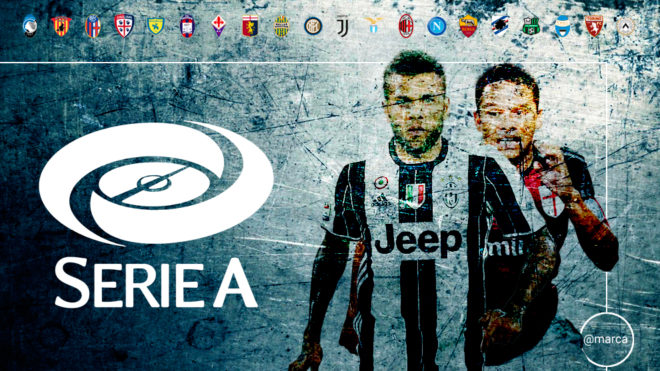Sky’s Decision to Pass on Italian Soccer Rights Shows Focus on Returns, Analyst Says
Bernstein’s Peter Supino says lower sports costs could drive EBITDA gains

The smarter way to stay on top of the multichannel video marketplace. Sign up below.
You are now subscribed
Your newsletter sign-up was successful
Being outbid by upstart streaming sports company DAZN for Italian rights to Serie A soccer wasn’t a sign of weakness for Comcast’s European satellite TV juggernaut Sky, but rather another hint that the company is focusing more on returns on invested capital (ROIC) rather than merely chasing growth, Bernstein media analyst Peter Supino said in a note to clients.
Sky Italia, Sky’s Italian satellite TV arm, has held exclusive Serie A rights in that country for years, but lost out to DAZN, which bid €2.5 billion over three years to carry the games. Shortly after, Sky Italia said it would reduce its workforce by 25% over the next four years, part of a restructuring that would save about €300 million.
“The decision to not pay over the odds for sports rights in the midst of a pandemic, will likely cost Sky subscribers and revenue growth, but is evidence of a more prudent mindset and a test of Sky's role as a content aggregator,” Supino wrote.
Whether that strategy extends to English Premier League rights, currently under negotiation, is still up in the air. But Supino pointed out that both Sky and British Telecom have “reduced their willingness to pay inflated fees for sports content” over the past few years. The U.K. segment of EPL rights sold for about £4.5 billion in 2018, down from its peak of £5.1 billion in 2015. While that downward trend could continue, the potential of other players like DAZN, Amazon, Netflix entering the bidding could drive up prices.
Supino and other analysts have been cautious of Sky ever since Comcast bought the British company in 2018 for $40 billion, a pseudo-consolation prize after it dropped its bid for Fox programming assets, which were eventually won by The Walt Disney Co. Most analysts were worried at the time that entering the traditional satellite video business in Europe, when the rest of the world seems to be focusing on streaming, was a risky move. That stance hasn’t changed.
Also Read: Italian Soccer’s Secret Weapon
The smarter way to stay on top of the multichannel video marketplace. Sign up below.
Former Sky CEO [now executive chairman] Jeremy Darroch had a plan to boost EBITDA at the Sky unit to $4 billion over the next few years, and Supino believes that new CEO Dana Strong should achieve that goal and then some. Strong had been CEO of Liberty Media’s Virgin Media units in the UK and Ireland and according to Supino, “earned her spurs” while she was head of Comcast’s Consumer Services unit, boosting margins from 39.7% in 2018 to 42.1% in 2020, and reducing capital intensity by 300 basis points during that period.
The loss of Italian soccer will likely result in a loss of subscribers, but will also dramatically reduce its sports costs. Sky Italia is currently negotiating with Serie A for non-exclusive rights to about 30 % of games, so it won’t be entirely without soccer. Those rights will cost about €100 million per year, instead of €780 million, Supino estimated.
Even if churn doubles to 1.5 million customers at Sky Italia over the next three years, the satellite company can still increase EBITDA. Supino estimated that customer losses would result in a £690 million hit to revenue compared to 2018, but not having to pay for soccer would still result in a 14% increase in EBITDA to £391 million in 2024 from £342 million in 2018.
The analyst added that the subscriber losses probably won’t be that dramatic because Sky Italia customers will still be able to access the games on the DAZN app, which is available on the satellite company’s Sky Q streaming platform. An increase in churn from 10% to 15% (about 700,000 customers) over the period would result in EBITDA rising to £605 million in 2024, according to Supino.
In that Xfinity Flex-like scenario, more Sky Italia customers are happy because they can still access the games via the DAZN app, and the distributor is happy because as an aggregator, it doesn’t have to weather the fees.
“Under this scenario, margins widen significantly despite top line contraction,” Supino wrote.
